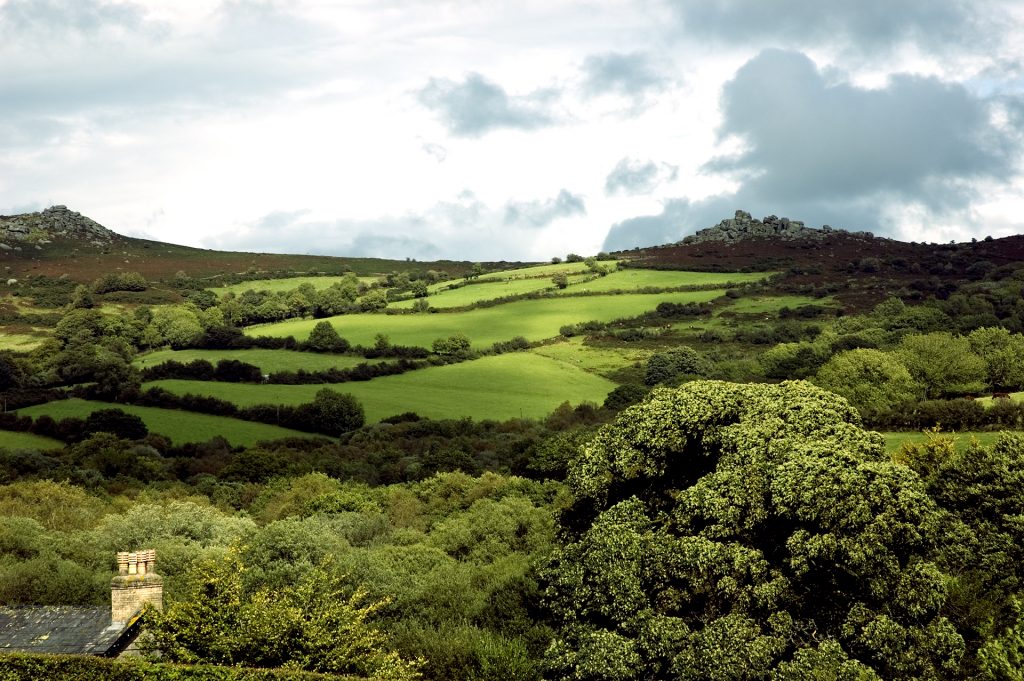
Kinder, Gentler Prose (West Country, England; present-day): The Better Angels of our Nature is a phrase first heard in 1861 from our 16th President, Abraham Lincoln, at his inaugural address. The soulful message rang out again on December 5th, 2018, a day after The Songbird was released, when historian Jon Meacham eulogized our 41st President, George H. W. Bush, at the Washington National Cathedral. It seems a particularly appropriate phrase to use – as well as Bush 41’s aim of a “kinder, gentler nation” – when thinking about The Songbird, British bestselling author Marcia Willett’s eighteenth novel.
Willett’s trademark is kind, gentle prose set in the peaceful English countryside.
Before you even open the author’s newest book, the cover (like many of her more recent novels) paints a watercolor image that feels good already. During the 2018 holiday season, we’re yearning for kinder, gentler. Though it’s been years since I read A Week in Winter, published in 2003, Willett’s lovely prose left an impression. If this is your first introduction to the warmth of Marcia Willett’s novels, you may want to return to her earlier ones, like I now want to do. Kinder, gentler is a gift.
The Songbird characters are good people (except for a mean-spirited outlier). That doesn’t mean this character-driven story of family relationships, love, and friendship is Pollyannish because these people have real troubles. We, then, can relate to their emotions and situations. Many seem like someone we know, used to know, or wish to know, rendered with grace and old-fashioned values and manners. You will not find any vulgarity or cruelty in the prose.
Cruelty does come, though, from circumstances out of the protagonist’s control. Tim, in his thirties, has decided to take a sabbatical from his marketing job at a London publisher, where he works with Mattie, a publicist. He doesn’t tell her why he needs to leave, but does ask if she knows any place he could “chill for a while. A cottage in the country but not too remote.”
Tim and Mattie are friends with early hints their relationship could go further if he let it, but he won’t, against his own needs, caring more about protecting Mattie, sparing her pain. Mattie, in turn, wishes he’d tell her why he’s leaving, but doesn’t pry. Right away you like them, the way they respect each other, tread gently.
Early on you’ll also learn one of Tim’s secrets: he’s been diagnosed with a cruel illness. It’s scary, made scarier because Tim has no family, no one to be there for him. Just this enormous burden, a time bomb waiting to explode.
Mattie does have an ideal solution for a healing retreat: a cottage in the West Country, where her sister and cousins live. When the novel opens Tim is living in one of the “terraced cottages” owned by Mattie’s cousin Frances Courtney, a retired member of the British Parliament. In his eighties, he’s writing his memoirs alone in the main house, once a farmhouse that goes back to the Napoleonic era. Also on the grounds are three cottages: two he rents out to extended family, the third now to Tim.
Tim finds the serene landscape helps to soften the blow of the heavy burden he’s carrying. He also discovers Mattie’s family is “the family he’s always longed for.” How they’re all related is a bit messy, and each is dealing with their own stages-of-life issues, but we like them a lot too (except for that one.)
A favorite is Aunt Kat “in her early sixties, a former international ballet dancer and choreographer, tall, graceful, unconventional.” She embraces this quiet landscape surrounded by this little family, nursing the death of her lover two years ago. But she’s not bitter or angry about her significant loss, for she’s someone who exudes a love for life and the arts that’s quite wonderful. Yes, she’s unorthodox, charmingly so, a live-your-life-to-its-fullest person. An antidote for Tim who needs all things life-affirming. Kat also delights us because the author was once a ballerina (noted inside the book jacket), so she conveys Kat’s gracefulness and appeal naturally.
Kat is living with cousin William, an arrangement that made sense when William’s wife abandoned their twenty-year marriage and the country life for a career in London, where she also cheated on good-natured William, who enjoys simpler pleasures such as singing in a choir. No one likes a manipulator, a betrayer like Fiona, including the reader. As the plot develops, you’ll see her selfishness and deceit come back to haunt her.
Tim is renting William and Fiona’s empty cottage. The other cottage is being rented by Fiona and William’s son Andy and Charlotte, Mattie’s older sister, whose essentially single-parenting their baby boy Ollie as Andy is in the Navy, away at sea. This little makeshift family makes all the difference in the world for Charlotte (and the others), easing her loneliness and helping out with Ollie. Wooster, her lovable, wagging tail dog, also provides great comfort, epitomizing our need for companionship and why so many of us can’t live without dogs. A “big, solid presence,” dogs love us no matter what.
What this surrogate family also prizes is Britain’s West Country. Francis’ estate may be fictional, but this area is not. Located in the southwest of England, somewhere near Devon and the moors of Dartmoor, nearby the sea. The author lives in Devon, clearly appreciates its “tranquillity” and unusual beauty.

By dennisredfield [CC BY 2.0], via Wikimedia Commons
Tim is not the only character who feels he’s living on borrowed time. Francis is not a well man; everyone’s future is uncertain as no one knows what will happen to the property should he die. Francis, more profoundly than the others, recognizes Tim is a “man with a secret – because “Francis knows all about secrets.” So he takes a special interest in Tim. Tim is also especially bolstered by Aunt Kat, whose “warmth and vitality give him courage. She accepts him without questioning or curiosity about his past. He is Mattie’s friend.”
Which brings us back to Mattie, who finds ways not to just keep waiting in the wings for reticent Tim. Since Mattie is the type of person who “could always make people love her,” says her older, a bit jealous sister, Tim is challenged to stay self-disciplined since there’s chemistry in the air.
Everyone cherishes something about the West Country, but seen through Tim’s lonely, anxious soul, it’s salvation. He marvels at “the peace of the woodlands – the banks of flowering azaleas, the scent of bluebells, the flittering of the birds in the canopy.” He savors the changing spring and summer seasons the novel spans, when sometimes the landscape has a “half-finished watercolor” look; at other times there’s a “radiance in the damp air: a brightness that touches the trembling raindrops with light and gleams on wet green leaves.”
Tim also can’t get over the slower pace that seems to enable so much friendliness and kindness to neighbors and strangers, though this family never treated him like one. An only child, we understand the importance of that for Tim, whose gratitude is profound.
The West Country and Tim’s newfound family make him feel that maybe, just maybe,“miracles can happen” here. Whether they do or don’t, he and we experience the better angels in us.
Wishing all a kind and gentle holiday season. See you in 2019.
Lorraine